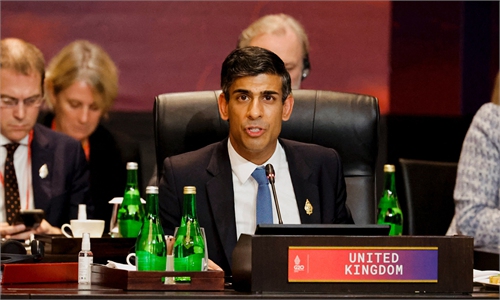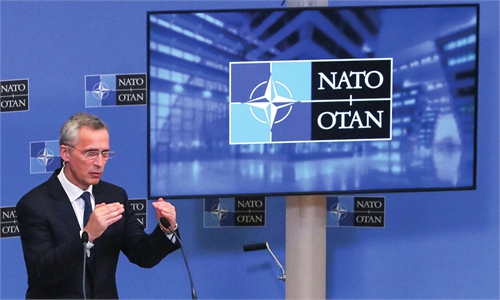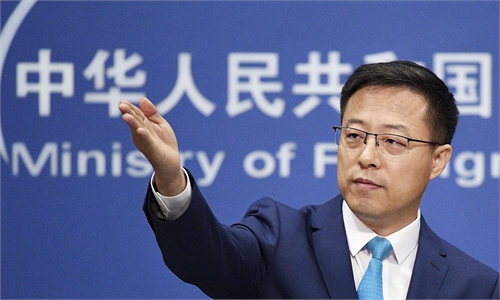UK won't be 'stupid' to cut off Chinese investment: British politician
Reality different from 'decoupling' calls, with British businesses valuing ties with China
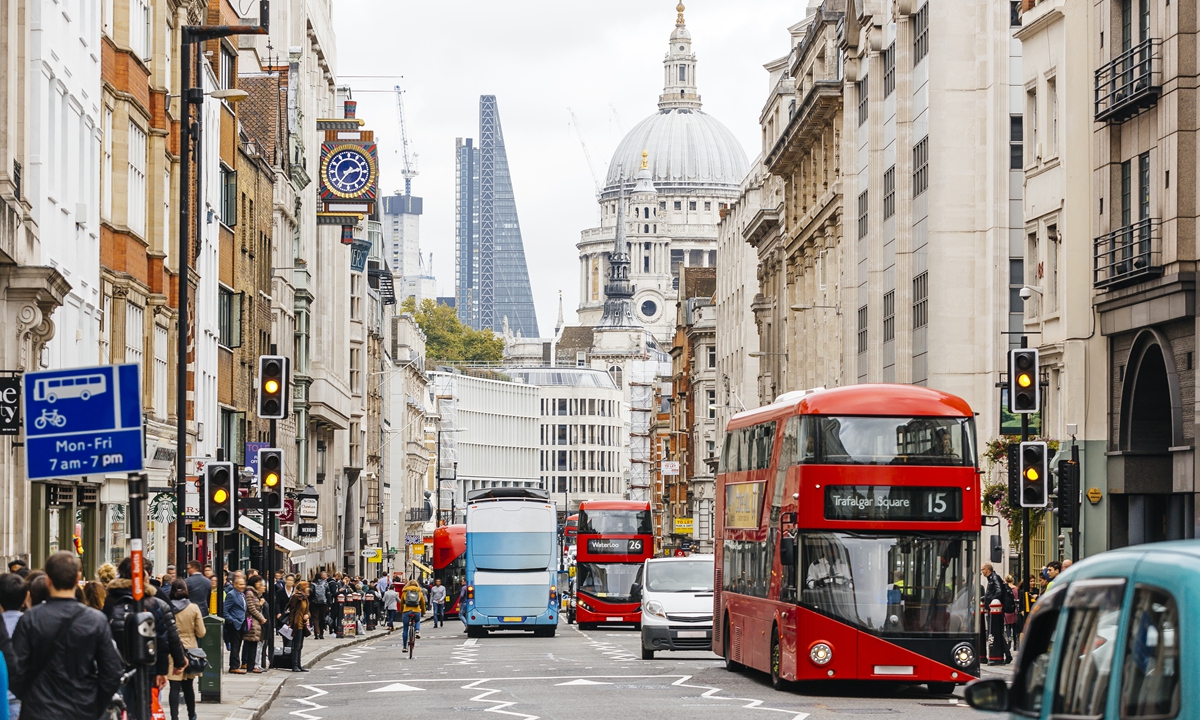
Street view of London, England Photo: VCG
Editor's Note:
The relations between China and the UK are at a crossroads after UK Prime Minister Rishi Sunak announced in his first foreign policy speech on Monday that the "golden era" of UK-China relations is over. Calls for a potential decoupling with China are on the rise among British politicians, which is particular evident in the high-tech sectors such as semiconductors and nuclear power. The Global Times (GT) recently conducted in an interview with Lord Neil Davidson (Lord Davidson), Shadow Treasury Minister for the Labour Party of the UK and member of the House of Lords, who shared his insights on the China-UK relations, UK's policy direction toward China and the development of China-propsed Belt and Road Initiative within the European bloc.
GT: How do you evaluate the current China-UK relations?
Lord Davidson: It's absolutely essential that China and the UK maintain good relations. We see Rishi Sunak a more rational, less ideological prime minister who recognizes the importance of China as a country that can invest in the UK and a country which the UK can cooperate economically.
Sunak faces in his own party, some very extreme people who have taken extreme views against china. To some extent, he has to appease the way in which they create these arguments within his party. But when one looks at his background as the Chancellor of the Exchequer, he was in charge of the economic side of things, he was very much pro-development of good relations with China. He was [expecting] to have the bilateral Economic and Financial Dialogue forward and it is because of the destruction caused by the change of leadership that the dialogue did not take place. I think that will take place very soon. I'm cautiously optimistic that we will be able to relations back onto a better situation than they have been under the Boris Johnson administration.
GT: The trade volume between China and the UK hit $110 billion for the first time. But there are voices in the UK and EU calling for decoupling with China. What's your take on this kind of voice?
Lord Davidson: We have all sorts of voices, saying all sorts of extreme things. Because they are sensational, they get quite a lot of coverage in the media. A look at what is being said shows it is based on very extreme and base on very much [hypes] of decoupling. But the reality is different. [The bilateral trade figure] identified how that reality is different - by the actual increase in the amount of trade. It comes down to business and people, they realize that the relationship with China is the central, particularly take that the UK is dependent on foreign investment. And we are not so stupid as wished to cut off investment from China, given its enormous power in the world economy.

Lord Neil Davidson
GT: The UK has a new Prime Minister and the country is facing serious economic and energy challenges. How will this affect the UK's policy on China?
Lord Davidson: The new prime minister is in an optimistic side. He, as Chancellor of Exchequer, has noticed that is important to start again and renew the China-UK Economic and Financial dialogue. This is my guess that he will be seeking to restart that very soon in the new year, as that provides a very useful platform which these types of issues can be discussed.
In relation to energy, given his economic background and rational approach to politics, he is bound to appreciate the necessity of cooperation in this area. The UK has taken the same hit as the rest of the EU countries with the soaring energy prices. But in the medium term and the long term, that is back to question of the green economy. And that is exactly where the UK, the EU can cooperate with China.
GT: What are the characteristics of China and UK economy and trade cooperations? And in what other areas can the two countries cooperate in the future?
Lord Davidson: The trade increases [last year] because it is in every party's interest. That way we can have more efficient use of resources. Among areas which the UK perhaps provides some interesting areas, one is education, also there is potential in logistics and the health industry. I think China also has quite a lot to teach in the way which it develops new energy. It's a potential area for cooperation. If the public economy is going to provide growth, I think one real effort is green economy, because so much must be changed if we're going to the world into a better climate situation. That's a critical area where we should be getting together to discuss how we can cooperate.
GT: In some interviews, you have shared your opinion regarding the BRI that the European countries were holding back on the BRI due to they, to some extent, didn't think they can actually function in the field. Based on your observation, has the situation changed over the years?
Lord Davidson: Over the years, the EU countries and the UK have become comfortable with the idea. Some UK company said they are always very keen to get all the projects which they will fit in and contribute. There has been a better understanding that the BRI is covering Asia, Africa and Europe. So I think the Western countries are more friendly to the idea of BRI.
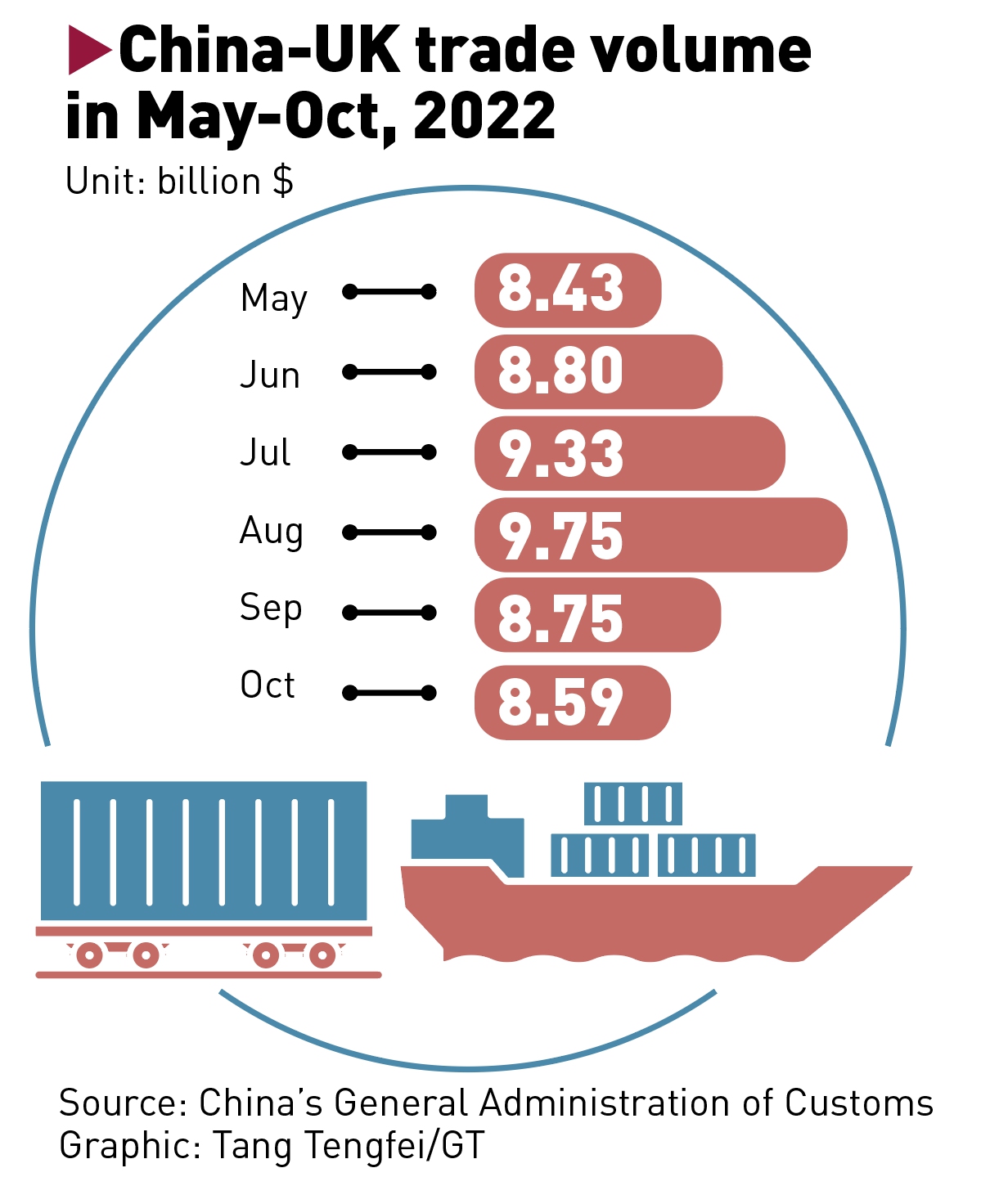
Graphic: Tang Tengfei/GT
GT: From Sri Lanka to Bangladesh as well as other developing nations, hypes of "debt trap" created by BRI have been emerging, what is your view on the so-claimed debt trap?
Lord Davidson: The notion that one has to borrow money to engage in a project and treat that is a burden in itself just ignore the way which investment works. And I heard the argument of "debt trap" has been created, but that really comes down to a question of economic decision-making. And if one party proposes, the other party accepts, the accepting party has to realize how the transaction is getting into. I didn't see this some kind of destructive outreach by China-proposed BRI.
GT: What's your understanding of the role of China's organizations play in its development? What impressed you the most?
Lord Davidson: Organizations in China are just remarkable. There's no parallel history of the way China in which it has developed economy and raised 800 million (people) out of poverty. This is an area which the world could learn from.
The one that impressed me is the way in which the rule of law has been developed. It certainly took the UK hundreds of years to develop the legal system. China seems to be moving ahead very quickly in developing an organized legal system. That operates as a foundation for much of the economic cooperation that takes on internationally. Without some legal basis, it's difficult for businesses trusting in its economic partners

